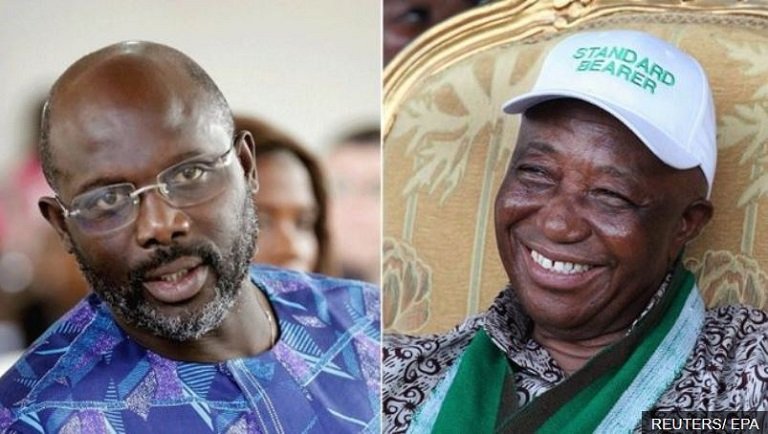Liberia President George Weah has conceded defeat to opposition leader Joseph Boakai on Friday after a tight presidential election race, ending a presidency tarnished by graft charges but helping to ensure a calm transition of power in the formerly violent African nation.
With virtually all ballots counted, Boakai, 78, a former vice president who lost to Weah in the 2017 election, led with 50.9% of the vote to Weah’s 49.1%, according to the country’s elections commission on Friday.
The outcome is a sharp contrast to 2017, when global football sensation Weah, propelled by a tide of hope, easily defeated Boakai with 62 percent of the vote. Many people have been disillusioned with the lack of progress: poverty, unemployment, food insecurity, and a lack of energy remain.
“A few moments ago, I spoke with president-elect Joseph Boakai to congratulate him on his victory,” Weah said on national radio. “I urge you to follow my example and accept the results of the elections.”
Weah’s concession paved the way for Liberia’s second democratic transfer of power in over seven decades; the first occurred six years ago, when Weah surged to power.
His remarks jumped out in West and Central Africa, where eight military coups have occurred in the last three years, weakening trust in democratic elections. When elections are held in the region, there are often allegations of fraud, and the results are usually challenged in court.
Instead, as the near-final results were announced, Boakai supporters in the capital, Monrovia, danced, yelled, and honked car horns in the rain.
“We have a job ahead of us to do, and I’m excited that the citizens have given us approval,” Boakai told newsmen shortly after the results were announced. “First and foremost, we want to have a message of peace and reconciliation.”
Boakai, a soft-spoken professional politician, finished neck-and-neck with Weah in the first round of voting in October but fell short of the 50% threshold required for an outright victory, forcing Tuesday’s run-off.
Liberia is still recovering from two civil wars that killed over 250,000 people between 1989 and 2003, as well as an Ebola epidemic that killed hundreds between 2013 and 2016.
Many people believed that Weah did not keep his pledges to reduce poverty and rebuild the country’s decaying infrastructure.
Arkoi Sarkor, 43, told newsmen she supported Boakai because she was not able to get a job during Weah’s term.
“I am very hopeful because I know Boakai is… a man of principles, and I know when he gets in here, he is going to bring about changes,” she said. “Some things that were not done, that were not correct, he will put them in place; I am hopeful of that.”











